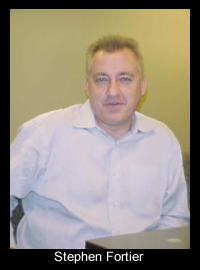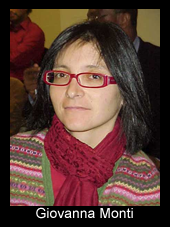Two EMSE graduate students working on important environmental research projects recently passed major milestones in their graduate work. Giovanna Monti Monti, an E&EM; professional Degree student from Italy, successfully defended her Professional Degree project, and Stephen Fortier, a doctoral candidate focusing on chemical security, successfully defended his doctoral proposal.
Giovanna Monti
Giovanna’s project, entitled “Applying an Ecosystem Service Approach to Supplemental Environmental Projects,” analyzed ongoing EPA “Supplemental Environmental Project (SEP)” Program and provides insight into its evaluation process, with the ultimate goal of defining an ecosystem service approach for evaluating SEPs.
The overarching goal of the SEP program is to implement “environmentally beneficial” projects that compensate the environment and the community where the violation occurred, but which the U.S. EPA does not have the authority to impose. Throughout her research, Giovanna realized that the concept of ecosystem services is a natural fit to improve the selection process of SEPs, and her project highlights the major points of connection between the SEP program and the ecosystem service concept.
Since the advance of modern environmentalism in the late sixties, the notion of ecosystem services has evolved significantly. Recently, increasing attention has been paid to advancing ecosystem services from an explanatory concept to a basic tool for decision making to quantify the benefits that people obtain from ecosystems.
In her project, Giovanna defined a structured framework where ecosystem services are the guiding principles in the selection, evaluation, and implementation phases of SEPs. Giovanna’s ecosystem service approach can give more transparency to the SEP selection process and assure more effective allocation of resources. In her research, Giovanna gathered information from and interacted with the World Resources Institute, EPA’s Ecosystem Services Research Program, and federal and states’ offices in charge of the SEP program.
Stephen Fortier

Stephen Fortier, a doctoral student working under the supervision of academic advisor Professor Greg Shaw, defended his dissertation proposal on “Defining an Optimal Emergency Response Mechanism for Chemical Facilities,” in the spring 2010 semester.
Stephen’s research highlights the need to define an effective and cost efficient emergency response mechanism for chemical facilities. Stephen is conducting a two-phase mixed method study on defining emergency response for small and large chemical facilities. Both the qualitative analysis of the current response mechanisms and the quantitative analysis provided by the simulation of the information technology components is intended to provide industry with information on future technology investments. Steve’s analysis could elucidate potential problems of chemical facilities that do not conscribe with the “normal” emergency response architecture.
The threat of terrorism has expanded the definition of critical infrastructure protection and response. Society has seen new threat modes that require much better planning to prevent these types of incidents. Threat models such as that being investigated by Stephen are used by the Federal Government and private industry to analyze and prepare for possible threats to critical infrastructure.


